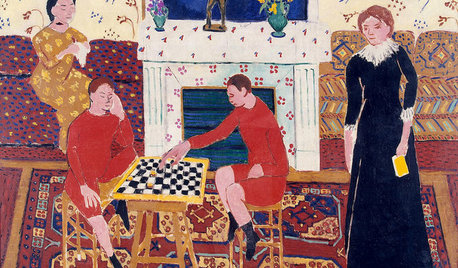Confused about yellow jackets
weddingdance
18 years ago
Featured Answer
Sort by:Oldest
Comments (19)
chuckr30
18 years agoorcuttnyc
18 years agoRelated Professionals
Ballwin Landscape Architects & Landscape Designers · Lowell Landscape Architects & Landscape Designers · Vernon Hills Landscape Architects & Landscape Designers · Bedford Landscape Contractors · Berkeley Heights Landscape Contractors · Darien Landscape Contractors · Dudley Landscape Contractors · Fort Mill Landscape Contractors · Mendota Heights Landscape Contractors · Midland Landscape Contractors · Paterson Landscape Contractors · San Carlos Park Landscape Contractors · Tinton Falls Landscape Contractors · Wentzville Landscape Contractors · Shafter Landscape Contractorsshireguy
18 years agoamymcg
18 years agoHairy_old_man
18 years agomom2cats
17 years agojane__ny
17 years agobeanmomma
17 years agozzepherdogg
17 years agonva_dad
17 years agozjohnson
17 years agojqpublic
16 years agotonybeeguy
16 years agocastlemaster
16 years agomisspistachio
16 years agotonybeeguy
16 years ago1apache_verizon_net
12 years agoValerie Tenneson
7 years ago
Related Stories

LIGHTINGWhat to Know About Switching to LED Lightbulbs
If you’ve been thinking about changing over to LEDs but aren't sure how to do it and which to buy, this story is for you
Full Story
GARDENING GUIDESNew Ways to Think About All That Mulch in the Garden
Before you go making a mountain out of a mulch hill, learn the facts about what your plants and soil really want
Full Story
GREEN BUILDINGWhat's LEED All About, Anyway?
If you're looking for a sustainable, energy-efficient home, look into LEED certification. Learn about the program and its rating system here
Full Story
COLORBye-Bye, Minimalist White — The New Nordic Style Is All About Color
The Scandinavian color palette is moving away from pale, cool shades with hot new hues on walls and floors
Full Story
COLORHave You Heard the Hues? 15 Colors You May Not Know About
Name-drop these shades at holiday parties — or better, try one on your walls — and expand your palette possibilities
Full Story
MOST POPULARWhat to Know About Adding a Deck
Want to increase your living space outside? Learn the requirements, costs and other considerations for building a deck
Full Story
DECORATING GUIDESWhat Matisse Can Teach Us About Interior Design
Learn to pack a punch with decor inspired by one of the most influential artists of the 20th century
Full Story
YELLOWColor of the Week: Celebrate Summer With Sunny Yellow
Bring home some of that glorious summer sunshine
Full Story
COLORDreaming in Color: 8 Eye-Opening Yellow Bedrooms
Start your day energized and cheerful with bedroom hues that sing of sunshine or golden fields
Full Story
COLORWelcome Yellow Around Your Home for an Instant Lift
Keep on the sunny side with shades of yellow from buttery and soft to dynamic and bright
Full StorySponsored






pearlandvb